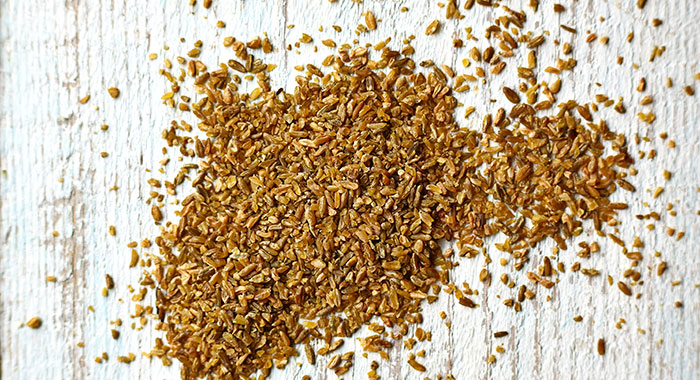
Pronounce it: free-kuh
Freekeh is a green grain made from young durum wheat which is roasted or smoked then polished to remove the shells. The grain is then cracked to varying degrees of coarseness. Freekeh is mentioned in the Bible and was reportedly discovered by accident when soldiers in the Eastern Mediterranean tried to ruin the crop by setting fire to wheat fields. In trying to salvage what they could, the locals discovered that if the burnt shells were removed, delicious green grains were revealed. The grains are pale green/brown and similar in texture to bulgar wheat. They have a rich, nutty, smoky flavour. An excellent addition to soups and stews, salads and pilafs, freekeh can be cooked like rice or barley and works well as a stuffing. Wholegrain freekeh is good for those following a low-Gi diet. It contains higher levels of dietary fibre and protein than standard wheat and is a source of calcium, potassium, iron and zinc.
Prepare it
Rinse before and after cooking. Use cracked as opposed to wholegrain freekeh for a shorter cooking time.
Store it
Store freekeh in an airtight container in a cool, dry place.
Cook it
For cracked freekeh, use one part freekeh to three parts liquid. Rinse it before adding to boiling salted water or stock. Return to the boil, cover and simmer for 15 – 20 minutes or until tender. Wholegrain freekeh needs more water and a longer cooking time, 35 – 45 minutes or until tender.
Alternatives
Try bulgar wheat.
Be the first to comment on "Freekeh"